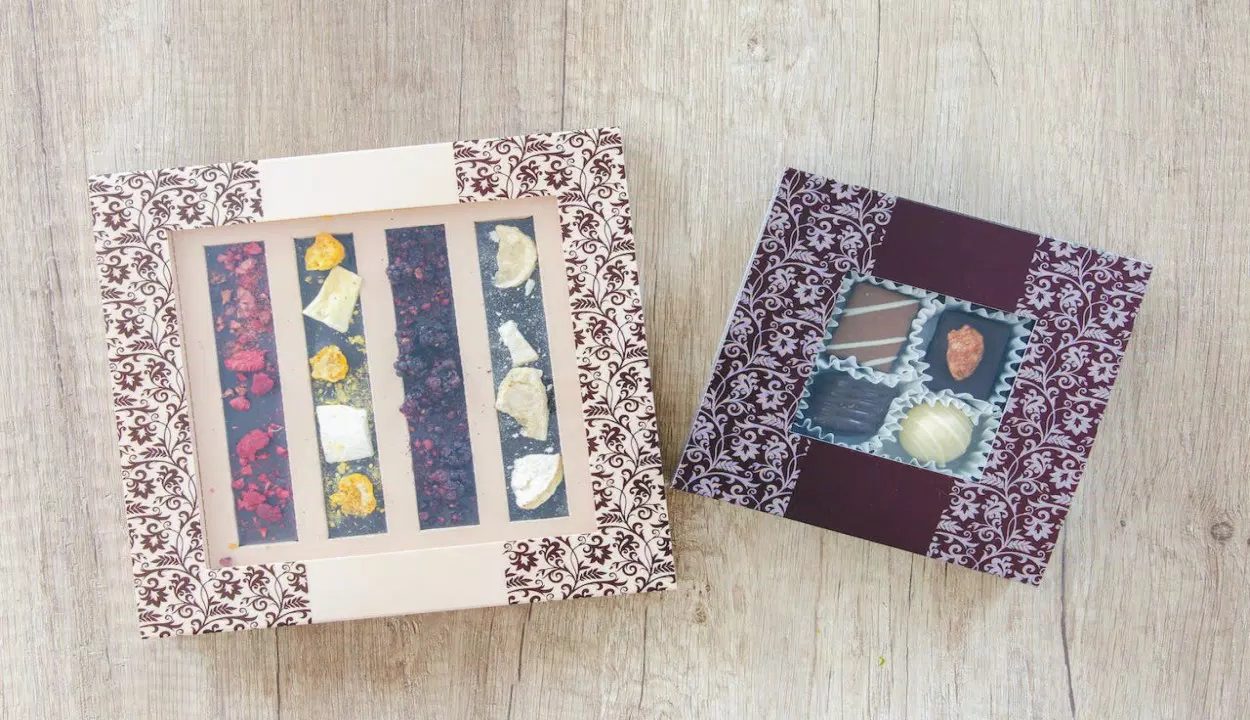Introduction: Exploring Unique Valentine's Day Traditions February 14th, a day dedicated to love and romance, is celebrated around the world in diver
Introduction: Exploring Unique Valentine’s Day Traditions
February 14th, a day dedicated to love and romance, is celebrated around the world in diverse and intriguing ways. While some may associate Valentine’s Day with boxes of chocolates and bouquets of roses, many cultures have their own unique traditions that showcase the richness of global romance. From leaves and twigs being tied together in Wales to create intricate love spoons symbolizing affection, to the heartwarming practice of sending anonymous letters or gifts known as Gukoroku in Japan, there is a multitude of customs waiting to be explored.

In South Korea, February 14th is not just for couples – it’s also a day for singles! Celebrated as “Black Day”, those who didn’t receive any gifts on Valentine’s Day or White Day (March 14th) come together to eat black noodles called Jajangmyeon. This lighthearted approach provides a refreshing twist on traditional romantic holidays by embracing all forms of relationships, making it an interesting addition to the worldwide spectrum of Valentine’s Day festivities. These lesser-known traditions offer a glimpse into the varied expressions of love and unity across different societies, adding depth and fascination to this widely recognized occasion.
Japan: Chocolate Obligations and Giri Choco
In Japan, Valentine’s Day holds a unique tradition called Giri Choco, where women give chocolates to male colleagues and acquaintances as a gesture of obligation rather than romantic affection. This practice stems from the Japanese concept of giri, meaning obligation or duty, and is often seen as an opportunity for women to express gratitude and maintain harmonious relationships in the workplace. Interestingly, the chocolates given on this occasion are typically store-bought rather than homemade, emphasizing the formal nature of giri choco.

On the flip side of Giri Choco is Honmei Choco, where women express their genuine romantic feelings by giving handmade chocolates to their loved ones on Valentine’s Day. This custom adds an extra layer of complexity to chocolate-giving traditions in Japan, highlighting distinct social nuances and expectations surrounding expressions of love and duty. The juxtaposition of these two types of chocolate obligations sheds light on the intricate interpersonal dynamics at play in Japanese culture when it comes to love, obligation, and social etiquette during Valentine’s Day.
South Korea: Celebrating Singles with Black Day
In South Korea, the unique celebration of Black Day takes place on April 14th, marking a day for singles to embrace their status and indulge in comforting black-colored cuisine. While Valentine’s Day and White Day are dedicated to couples exchanging gifts, Black Day is all about acknowledging singlehood. This unconventional yet increasingly popular tradition provides an opportunity for singles to come together, enjoy delicious food like Jajangmyeon (black bean noodles) or black sesame desserts, and celebrate their independence with friends. The playful nature of this event empowers individuals to embrace their singledom, fostering a sense of community and camaraderie among those who may feel left out during more traditional romantic celebrations.

By commemorating Black Day in South Korea, the nation not only acknowledges the diverse experiences of its citizens but also highlights the importance of self-love and unity within society. This unexpected twist on Valentine’s traditions showcases the country’s willingness to challenge societal norms while bringing people together through shared experiences. The celebration’s focus on embracing individuality encourages a positive outlook on being single while promoting inclusivity and support for those who may feel overlooked during other romantic-focused holidays. As such, South Korea’s Black Day serves as a powerful reminder that love comes in many forms and that there is significant value in celebrating personal independence.
Wales: Love Spoons and Hand-Carved Tokens
Nestled in the enchanting land of Wales, an ancient tradition of love and craftsmanship thrives through the art of hand-carved love spoons. These intricately crafted tokens date back to the 17th century and are lovingly carved by skilled artisans as symbols of affection. Each unique spoon tells a tale of love, with intricate designs symbolizing different sentiments, such as loyalty, longevity, and even protection.

These tokens are not limited to romantic expressions alone; they also serve as heartfelt gifts for special occasions like weddings and births. The tradition has evolved over centuries, blending old-world charm with modern influences to create timeless symbols of devotion. As visitors wander through Welsh markets or craft fairs, they can witness these cherished traditions come alive in the form of beautifully carved love spoons—a true testament to the enduring power of love and craftsmanship in Wales.
Brazil: Dia dos Namorados and Romantic Festivities
In Brazil, Dia dos Namorados, or Lovers’ Day, is celebrated on June 12th, and it’s a day dedicated to celebrating romantic love and relationships. While the rest of the world celebrates Valentine’s Day in February, Brazil’s unique celebration brings a festive air to the winter season in the southern hemisphere. One of the most charming traditions of Dia dos Namorados is exchanging gifts such as chocolates, flowers, and small tokens of affection among loved ones.

What sets Dia dos Namorados apart from traditional Valentine’s Day celebrations is its association with Saint Anthony, known as the marriage saint. On this day, single women perform rituals hoping to find a suitable partner by offering prayers and placing offerings at their altar. This adds an element of cultural significance and religious tradition to the romantic celebrations in Brazil. The holiday also sees couples enjoying special meals at restaurants or cooking together at home while being serenaded with live music performances reflecting Brazil’s vibrant musical culture.
Finland: Friendship Day and Acts of Kindness
In Finland, Valentine’s Day is not just about romantic love, but it also celebrates the importance of friendship. Known as Ystävänpäivä, this day is dedicated to showing appreciation for friends and loved ones through acts of kindness and small gifts. Instead of focusing solely on romantic gestures, the Finnish people emphasis spreading warmth and affection to everyone in their social circle.

A popular tradition on this day is for people to exchange cards and small tokens of appreciation with their friends, family, and colleagues. It’s a beautiful reminder that love comes in many forms and that friendships are equally deserving of recognition and celebration. This unique perspective on Valentine’s Day highlights the value placed on meaningful connections outside of traditional romantic relationships, making it an inclusive and heartwarming occasion for everyone involved.
Conclusion: Embracing Diverse Valentine’s Day Customs
In conclusion, embracing diverse Valentine’s Day customs allows us to appreciate the rich tapestry of love and romance across different cultures. Rather than being confined to a single, commercialized version of Valentine’s Day, we can open our hearts and minds to the unique ways that people around the world celebrate this day of love. By learning about and participating in diverse traditions, we not only expand our own understanding of love but also foster connections with people from various backgrounds. Whether it’s exchanging handmade cards in Wales or honoring friendship in Finland, each custom offers a glimpse into the beautiful mosaic of human emotions and relationships.
Ultimately, by embracing diverse Valentine’s Day customs, we dismantle the idea that there is a singular correct way to commemorate love. This celebration becomes an opportunity for inclusivity and respect for different expressions of affection. As individuals continuously reshape their own beliefs concerning this holiday—whether it be through travel experiences or simply educating themselves on new customs—they contribute to fostering a more compassionate global community. So let’s embrace these diverse Valentine’s Day customs with open arms and an open heart, allowing ourselves to be enriched by the myriad ways love is cherished around the world.
